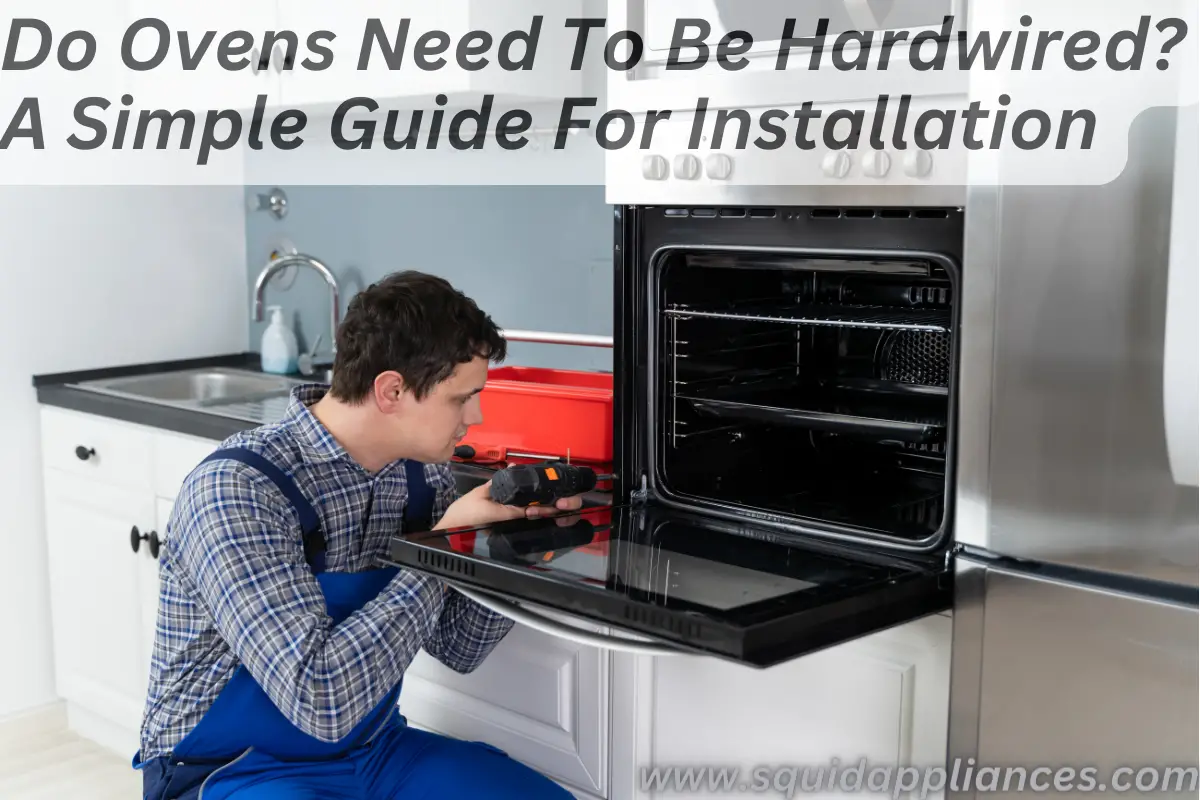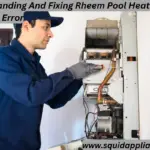In this guide, I will provide you with a comprehensive understanding of oven electrical requirements and explain whether ovens need to be hardwired for installation.
When it comes to installing an oven in your home, it is crucial to understand the different types of oven connections and assess your home’s electrical system to ensure a safe and efficient installation process.
I will walk you through the steps involved in hardwiring an oven, providing detailed instructions that are easy to follow.
Additionally, I will discuss alternative options to hardwiring, such as plug-in options, which may be more suitable depending on your specific needs and circumstances.
By the end of this article, you will have a clear understanding of whether your oven needs to be hardwired or if there are other viable installation options available. So let’s dive into this simple guide for oven installation and ensure that you make the right choice for your home.
Do Ovens Need To Be Hardwired?
Yes, ovens may need to be hardwired. Understanding oven electrical requirements and your home’s electrical system is crucial. While hardwiring ensures stability and safety, plug-in options offer flexibility. Follow safety precautions and assess power compatibility for a seamless installation process. Consulting professionals is recommended for proper and safe installation.
Key Takeaways
- Understanding oven connections and assessing the home’s electrical system is crucial for proper installation.
- Evaluating the oven’s specific electrical requirements and power capacity is necessary to ensure compatibility.
- Improper installation can pose safety risks, so it is important to follow safety regulations and avoid common mistakes.
- Different types of oven connections exist for electric and gas ovens, with gas ovens typically requiring a standard electrical outlet.
Understanding Oven Electrical Requirements
To ensure the proper installation of your oven, you’ll need to understand its specific electrical requirements. Evaluating power capacity is crucial to determine if your oven can be supported by your current electrical system.
It’s important to follow safety regulations when installing an oven, as it involves working with high voltage electricity. Failure to comply with these regulations can result in electrical hazards and damage to your appliance.
Types of Oven Connections
There are various ways you can connect your oven to the power supply. When it comes to gas vs. electric ovens, the type of connection required may differ.
For electric ovens, they typically require a dedicated circuit with its own breaker and wiring. Gas ovens, on the other hand, may only need a standard electrical outlet for powering certain components like the control panel or ignition system.
It’s important to avoid common oven installation mistakes to ensure proper functionality and safety.
Assessing Your Home’s Electrical System
Evaluate your home’s electrical system to ensure it can handle the power requirements of your new oven, for a worry-free and efficient cooking experience.
- Assess the amperage rating of your electrical panel.
- Calculate the total power consumption of all appliances connected to the same circuit.
- Determine if any upgrades or changes are needed to meet the oven’s power needs.
Remember, if you’re unsure about any aspect of your home’s electrical system, it’s always recommended to hire an electrician for professional assistance.
Steps for Hardwiring an Oven
Are you ready to learn how to hardwire your new oven for a seamless and efficient cooking experience? Before we begin, it’s crucial to prioritize safety precautions during oven installation. Ensure that the power is turned off at the circuit breaker before starting any electrical work.
Additionally, avoid common mistakes such as using improper wiring techniques or not following manufacturer instructions. By taking these precautions, you can safely and successfully hardwire your oven.
| Safety Precautions | Common Mistakes |
|---|---|
| Turn off power at circuit breaker | Using improper wiring techniques |
| Follow manufacturer instructions | Not following manufacturer instructions |
Alternatives to Hardwiring: Plug-In Options
Consider exploring plug-in options as an alternative to hardwiring your oven, allowing for greater flexibility and convenience in your kitchen. Plug-in options provide advantages such as easy installation and the ability to move the oven if needed.
However, there are also disadvantages to consider, including potential limitations on power and the need for a dedicated outlet. When choosing a plug-in option, ensure it’s compatible with your oven’s power requirements and consult an electrician if needed.
Frequently Asked Questions
Can I install an oven myself if I have no prior electrical experience?
I do not recommend installing an oven without prior electrical experience. It can be dangerous and lead to common mistakes, such as improper wiring or inadequate grounding. Always hire a professional for safe installation.
What is the maximum distance that can be allowed between the oven and the electrical panel?
The maximum distance between the oven and the electrical panel depends on the power requirements of the oven. It is important to consult the manufacturer’s specifications or a qualified electrician to determine the appropriate distance for safe and efficient operation.
Can I use an extension cord to connect my oven if it is not located near an electrical outlet?
Using an extension cord for an oven is not recommended due to safety hazards. Ovens should be hardwired to ensure a secure and reliable electrical connection, preventing potential fire risks and electrical malfunctions.
Are there any safety hazards associated with hardwiring an oven?
When hardwiring an oven, it is important to take safety precautions. Make sure the power is turned off before starting, use appropriate wiring and connectors, and follow the manufacturer’s instructions. Avoid common mistakes like improper grounding or using inadequate wire size.
Can I use an existing electrical circuit in my home to power my new oven?
Yes, you can use an existing circuit in your home to power your new oven. However, it is important to ensure compatibility and consult a professional for installation benefits such as safety and proper wiring.
Conclusion
In conclusion, it’s essential to understand the electrical requirements of ovens before installation. Hardwiring an oven ensures a secure and permanent connection, providing stability and safety.
By assessing your home’s electrical system and following the necessary steps for hardwiring, you can ensure proper installation.
However, if hardwiring isn’t feasible or preferred, there are plug-in options available as alternatives. It’s crucial to choose the right method that suits your needs while adhering to electrical safety guidelines.






